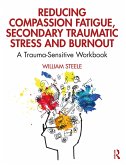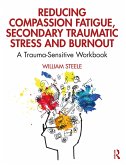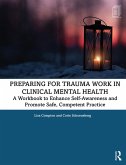Dieser Download kann aus rechtlichen Gründen nur mit Rechnungsadresse in A, B, BG, CY, CZ, D, DK, EW, E, FIN, F, GR, HR, H, IRL, I, LT, L, LR, M, NL, PL, P, R, S, SLO, SK ausgeliefert werden.
-Craig L. Katz, MD, director of the program in global mental health and clinical associate professor of psychiatry and medical education at Icahn School of Medicine at Mount Sinai
"The experiences of 9/11 left mental health responders with serious wounds and the field of disaster mental health with important questions about how to better protect responders from the effects of vicarious trauma. Filled with fascinating personal accounts by those on the ground, this evidence-based book teaches us about the nature of vicarious trauma and its impact. Most importantly, it gives us practical tools, strategies, and resources to promote vicarious resilience."
-Linda Ligenza, LCSW, clinical services director and faculty for trauma-informed care initiatives at the National Council for Behavioral Health
"This book is an unusually comprehensive resource on disaster mental health interventions and the resulting vicarious traumatization that workers may experience. Theory and research are richly illustrated with first-person accounts from those working in post-disaster settings. It is a useful guide for anyone who risks their own well-being to help others recover and accommodate new realities."
-Laurie Anne Pearlman, PhD, lead author of Treating Traumatic Bereavement: A Practitioner's Guide









